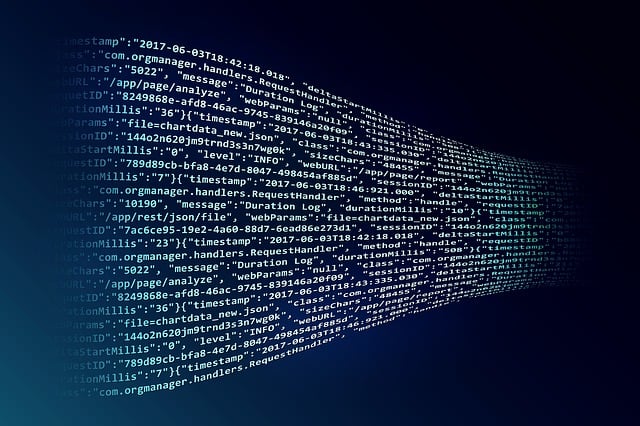AI Background Check: What Is It & How Does It Work?
Michelle Wilson - March 8, 2023

Artificial intelligence is changing the way the world lives and works. In fact, according to recent online data, the global market for AI is expected to reach a staggering $266.92 billion by 2027.
However, one area where AI is truly making a significant impact is employment. More and more employers are using AI-powered systems to streamline hiring processes and improve candidate experiences, including using chatbots to answer candidate questions and automated resume screening. However, the most significant change may be yet to come: the use of AI to drive and automate the employee background check process.
Table of Contents
Definition of AI Background Checks
AI background checks are a modern approach to background screening that utilizes machine learning algorithms and natural language processing techniques to gather and evaluate data about a candidate’s background. The process begins with collecting data, which can come from various sources such as public records, social media profiles, and other online sources.
After collecting the data, AI algorithms analyze it to identify potential red flags or concerns. The algorithms can detect patterns and inconsistencies in the data, such as employment history gaps or educational qualifications discrepancies. They can also flag criminal history records or other issues that may impact the suitability of the candidate for the job or opportunity.
How Does AI Background Check Work?
Collection of Data
The process can vary depending on the system when collecting data for an AI background check. However, there are some common data sources that many systems will likely use. One of the most obvious sources is the candidate’s resume, which can provide information about their work history, education, and skills. Another important data source is social media profiles, which can give insight into a candidate’s personal life, interests, and behavior. AI systems can analyze a candidate’s social media activity for any red flags or concerning behavior, such as posts about drug use or violent tendencies.
Criminal records are also a key data source for AI background checks. Some of this data includes state and federal databases and court records. Credit history is another common data source which can reveal a candidate’s financial stability and responsibility. In addition to these more traditional data sources, AI systems can gather data from various online sources, such as news articles or blog posts. Natural language processing (NLP) technology can then analyze the text and identify any relevant information.
Data Analysis and Evaluation
Next, the AI system uses machine learning algorithms to analyze and evaluate the data. These algorithms can identify patterns, correlations, and anomalies in the data to help identify potential red flags. For example, if a candidate has a history of criminal activity, the AI system can analyze the data and flag this as a potential risk factor.
Results and Reporting
Finally, the AI system generates a report summarizing the background check results. This report can include information such as criminal history, credit history, employment history, education, and other relevant information. Employers then use the report to make informed decisions about whether to hire a candidate or not.
Benefits of AI Background Checks
AI background checks offer several benefits over traditional background checks.
Not Location Specific
The remote nature of AI background checks has several benefits, as supported by statistics. According to online data, 54% of organizations consider remote background checks more efficient and cost-effective than traditional methods. Experts liken this to remote background checks eliminating the need for in-person visits to government agencies or courthouses, saving time and resources. Employers or landlords can conduct background checks on candidates from anywhere, at any time, without the need for travel or additional expenses.
Additionally, remote background checks offer greater accessibility to candidates living in remote or rural areas where access to government agencies or courthouses may be limited. Moreover, around 27% of Americans living in rural areas have difficulty accessing government services online, compared to only 13% of urban residents. The remoteness of AI becomes extremely beneficial for companies that operate nationally or globally and need to screen candidates from various regions.
Pre-established Criteria As a Basis for Efficiency
AI background checks encourage employers to establish specific candidate criteria and focus on relevant data points. Taking the extra step can help prevent a blanket rejection of candidates with criminal histories, even if those histories aren’t relevant to the position.
Less Bias
Reducing bias is a crucial aspect of an AI background check, ensuring the process is fair and objective. Traditional background checks may be susceptible to human biases, such as racial or gender bias, leading to unfair and inaccurate assessments of an individual’s character or suitability for a job.
AI-based background checks use algorithms to analyze data objectively without human interference or bias. These algorithms identify and categorize relevant information based on predefined criteria, such as criminal records, employment history, education, and social media activity. Predefined criteria ensure the assessment has a basis in relevant factors rather than personal biases.
Greater Efficiency
AI background checks can process large amounts of data quickly and efficiently, reducing the time and resources required for manual background checks.
Drawbacks of Artificial Intelligence
While AI background checks offer many benefits, they also have serious drawbacks.
Overgeneralization of The Background Check Process
The biggest criticism against AI background check technologies is that they oversimplify complex matters and turn them into black-and-white, pass-or-fail cases. Traditional background checks consider many factors, such as the severity of a crime, the length of time since the person committed the crime, and whether there have been repeat offenses. However, it’s unclear if AI is sophisticated enough to consider all of these considerations.
No Empathy
Critics also identify a lack of empathy as a drawback for AI background checks since they may impact the chances of candidates with a criminal record getting hired. According to public data, 73 million Americans have a criminal history. If employers or landlords solely rely on AI background checks to vet candidates, they may miss out on qualified candidates who deserve a second chance, ultimately perpetuating discrimination and inequality.
Negative Historics
While many companies claim that AI-driven background checks are thorough, they don’t always have a flawless track record. For example, some companies have gone under fire for failing to prevent assaults, harassment claims, kidnappings, and even deaths.
Missing the Full Picture
Recent statistics show that the scope of AI background checks remains a major drawback. While quality background checks include data from multiple sources, some AI background check tools have limited access to data sources, potentially leading to incomplete or inaccurate results. For instance, reports indicate that one AI tool relies on only 80 million criminal records for searches, while another includes more than 650 million records. As a result, employers and landlords may not get a comprehensive picture of a candidate’s background, leading to potential oversights and hiring mistakes.
The Future of AI Background Checks
Many agree that the option to run a free background check using automated or AI-powered tools has revolutionized the vetting process by offering benefits such as speed, efficiency, and the ability to create more thoughtful background check criteria. However, these tools lack the nuance and context to conduct fair, compliant, and compassionate vetting for employees and tenants. Therefore, while AI tools can supplement traditional and manual background checks, they cannot fully replace them.
Related Posts
Recent Posts
Popular Posts
Sorry. No data so far.








